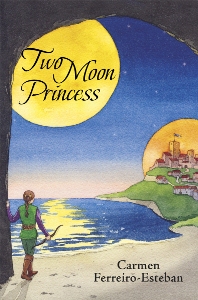This review contains affiliate links, which earn me a small commission when you click and purchase, at no extra cost to you. Thank you for supporting my small business and allowing me to continue providing you a reliable resource for clean book ratings.
I’ll be up front: I am not a fan of Peter Pan. I find it sexist, annoying and underdeveloped. So a retelling of the story wasn’t on my radar as something I’d like to read. But this retelling, from Tiger Lily’s point of view, not only gives the Peter Pan story some depth, it softens the immaturity of Peter and gives power to both Tiger Lily and Tinker Bell (though Wendy still comes off as a brat), which is something I admired.
Tiger Lily is the daughter of the Sky People’s shaman. She doesn’t quite fit in: she’s brusque and boyish, preferring the quiet of the woods to the busy-ness of her people. However, she is willing to follow tradition and be a part of the community, so when she’s engaged to a brute of a man, she doesn’t argue. But then, quite by accident, she meets Peter: with his magnetic personality, impulsiveness and winning smile. Tiger Lily doesn’t mean to fall in love. She doesn’t mean to get so involved in his life that she’s willing to give up everything she has. Yet she finds Peter irresistible and can’t stay away.
The most unique thing about this book, I think, is that while it’s Tiger Lily’s story, Tinker Bell is the narrator. It seemed an odd choice at first, but as the story went on, I understood the choice. First, it gives the reader insight into Tink’s character: no longer is she “just” the fairy, but rather a vital and integral part of the story. Second, a story from Tiger Lily’s point of view would lack … elegance. She isn’t a terribly aware person and probably doesn’t know what she is feeling half the time. Tink is more aware, more knowledgeable about what is going on, and thus a more reliable narrator.
The other thing I really enjoyed is what Anderson does with the minor characters. Aside from Wendy, who doesn’t show up until two-thirds of the way through the book and basically serves no purpose, the rest of the minor characters — from the shaman Tik Tok; to Tiger Lily’s friend Pine Sap; to Hook and (especially) Smee — are given rich back stories and explanations behind their actions. It’s wonderfully faithful to the original story, while being its own creation.
Additionally, the writing is lovely. At its heart, Tiger Lily is a story of first love, and Anderson captures all the turbulence of that perfectly. I didn’t think I wanted to read this one, but in the end, I’m so glad I did.
Rated: Mild for violence.




